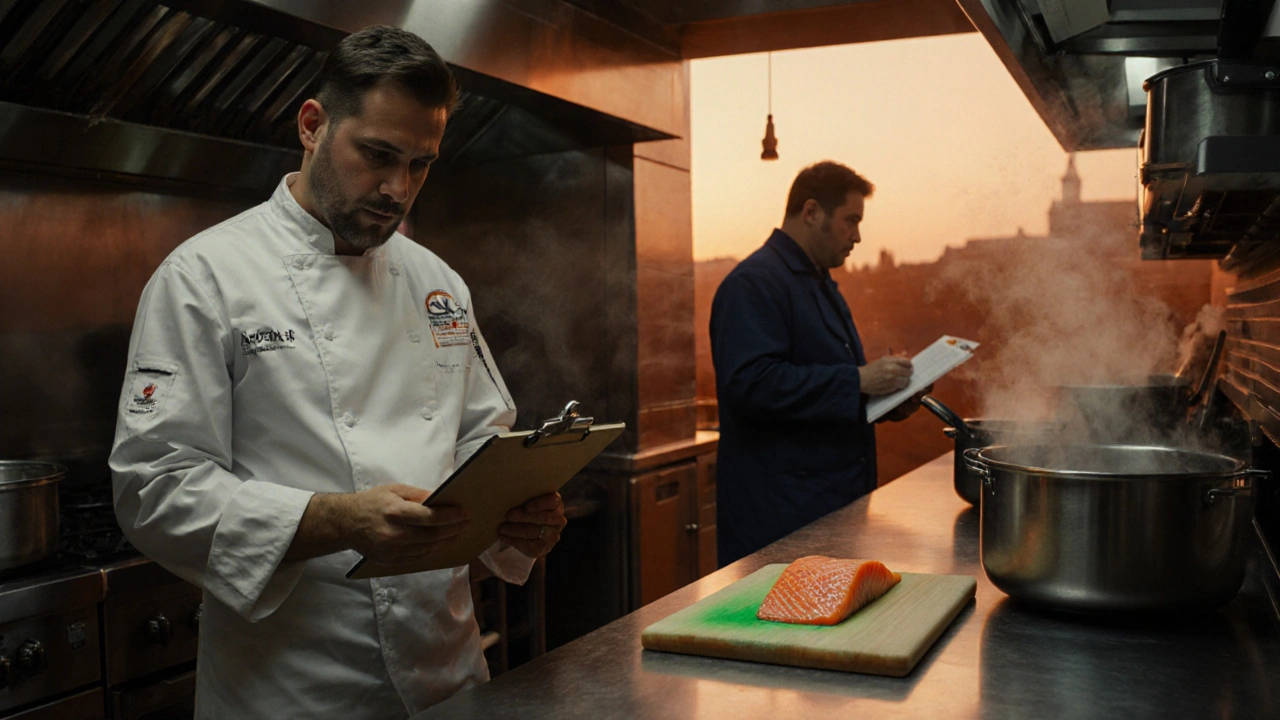
Salmonella Outbreak Financial Impact Calculator
Business Details
Estimated Costs
$0
Breakdown
Recall Costs: $0
Lawsuit Costs: $0
Regulatory Fines: $0
Reputation Damage (Estimate): $0
When a salmonella outbreak hits your restaurant or food‑manufacturing line, the headlines aren’t the only thing that hurts - your bottom line can take a serious blow too. From costly recalls to lawsuits, the legal fallout can be as nasty as the bacteria itself. Below you’ll find a quick‑hit overview, followed by a step‑by‑step guide to staying on the right side of the law.
TL;DR - What You Need to Know
- Notify the Food Standards Agency (FSA) within 24hours of detection.
- Prepare for a product recall - it’s often mandatory under the Food Safety Act 1990.
- Liability can arise from negligence, strict liability, or breach of statutory duty.
- Implement a HACCP plan (Hazard Analysis Critical Control Point) to reduce risk.
- Keep detailed records - they’re your best defence in court.
Understanding a Salmonella outbreak a sudden rise in salmonella infections traced back to a specific food source, often leading to public health alerts and legal scrutiny
Salmonella bacteria thrive in raw meat, eggs, and unpasteurised dairy. An outbreak can spread quickly through supply chains, affecting restaurants, caterers, and packaged‑food producers. In the UK, the Food Standards Agency coordinates the response, while local health authorities carry out inspections.
Key Legal Framework in the UK
The primary statutes that kick in during an outbreak are:
- Food Safety Act 1990 - makes it an offence to sell unsafe food.
- Food Information Regulations 2014 - requires accurate labelling and allergen information.
- Consumer Protection Act 1987 - introduces strict liability for defective products that cause injury.
Failure to comply can trigger criminal prosecution, civil claims, or both.

Types of Liability You Might Face
Understanding how the law pins responsibility helps you plan a defence.
| Liability Type | Key Elements | Typical Penalties |
|---|---|---|
| Negligence | Duty of care, breach, causation, damage | Compensatory damages, possible fines |
| Strict Liability (Consumer Protection Act) | Defective product that caused injury - no need to prove fault | Significant damages, court‑ordered remediation |
| Breach of Statutory Duty (Food Safety Act) | Violation of specific food safety regulations | Criminal prosecution, unlimited fines, possible imprisonment |
In practice, most claims blend negligence with strict liability - plaintiffs will argue you failed to implement a proper HACCP system, which is a recognized standard of care.
Immediate Legal Actions When an Outbreak Occurs
- Notify the authorities. The Food Standards Agency must be informed within 24hours of a confirmed case.
- Initiate a product recall. The Food Safety Act 1990 gives regulators power to demand a recall if food is unsafe.
- Preserve evidence. Keep batch records, temperature logs, supplier invoices, and cleaning schedules - they’re vital for both regulatory inspections and potential court proceedings.
- Engage legal counsel. Early advice can shape your response strategy and potentially mitigate damages.
- Communicate with customers. Transparent communication can reduce reputational harm and may lower the likelihood of class‑action suits.
Step‑by‑Step Mitigation Checklist
- Review and update your HACCP plan quarterly.
- Train staff on proper food handling and temperature controls.
- Audit suppliers for compliance with UK food safety standards.
- Implement real‑time monitoring of critical control points (e.g., fridge temps).
- Maintain a centralised incident‑log for any contamination signs.
- Conduct mock recalls at least once a year to test response speed.
- Secure appropriate insurance coverage - product liability policies often include outbreak clauses.
Real‑World Cases that Shaped the Law
Case 1: The 2018 “Raspberry” outbreak. A UK supermarket chain faced a £1.2million damages award after failing to isolate a contaminated batch. The court highlighted the absence of a documented HACCP review as a breach of duty.
Case 2: The 2022 “Egg‑pasteurisation” scandal. A manufacturer was criminally prosecuted under the Food Safety Act for selling under‑pasteurised eggs. The conviction included a £250,000 fine and a 12‑month suspended sentence for the managing director.
Both cases underline that regulators look at both the procedural safeguards you had in place and how quickly you acted when things went wrong.
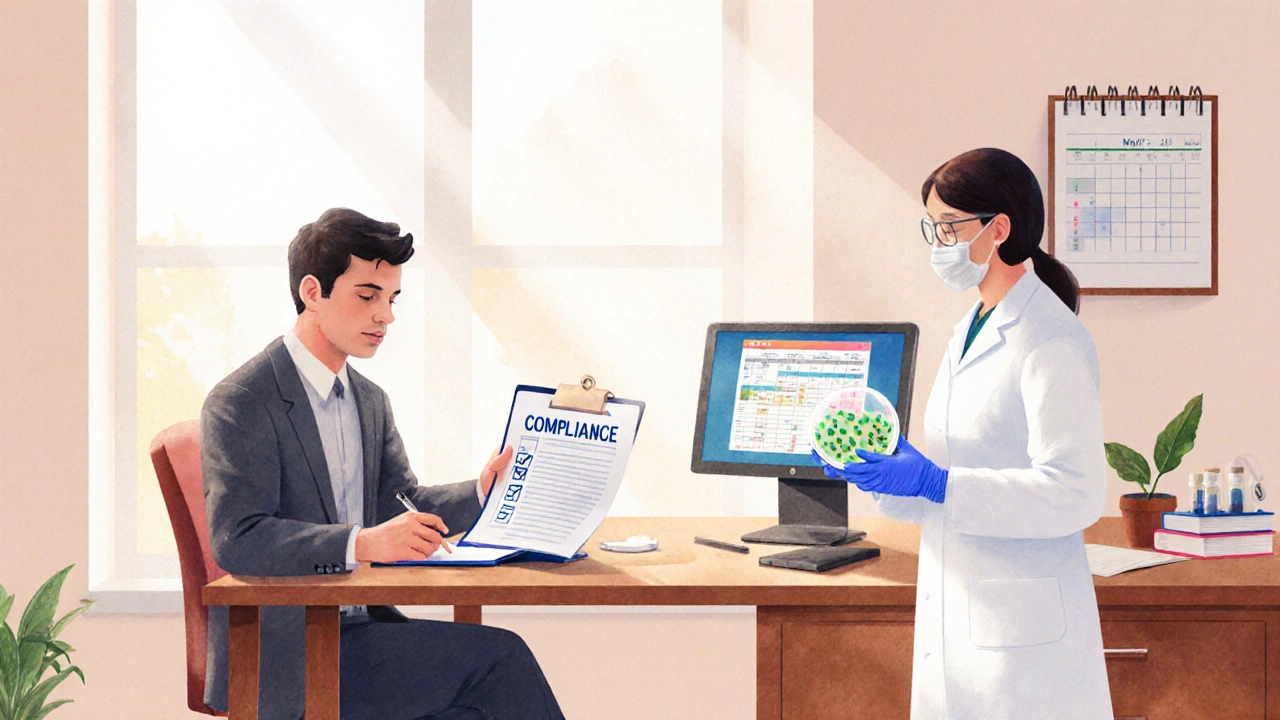
Frequently Asked Questions
What triggers a mandatory product recall?
Under the Food Safety Act 1990, any food that is deemed unsafe for human consumption - whether due to bacterial contamination, allergens not declared, or any other health risk - must be recalled. The Food Standards Agency can order a recall if it believes public safety is at risk.
Can a business be held strictly liable even if it followed all safety protocols?
Yes. Strict liability under the Consumer Protection Act does not require proof of fault. If a product causes injury because it is defective, the producer can be held liable regardless of the precautions taken. However, demonstrating a robust HACCP system can influence the court’s assessment of damages.
How long do I have to keep food safety records?
The Food Standards Agency requires records to be retained for at least two years, but many insurers and legal experts advise keeping them for five years to cover any delayed claims.
Is insurance worth the cost for a small café?
Absolutely. A modest product‑liability policy can protect a small café from multi‑million‑pound claims that would otherwise crush the business. Look for policies that specifically cover food‑borne illness outbreaks.
What penalties could a director face personally?
If a court finds a director deliberately ignored food‑safety obligations, they can face disqualification from holding directorships, personal fines, and in extreme cases, imprisonment under the Food Safety Act.



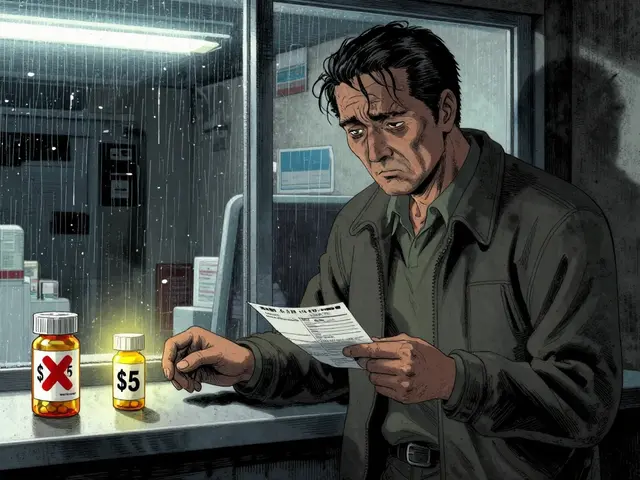
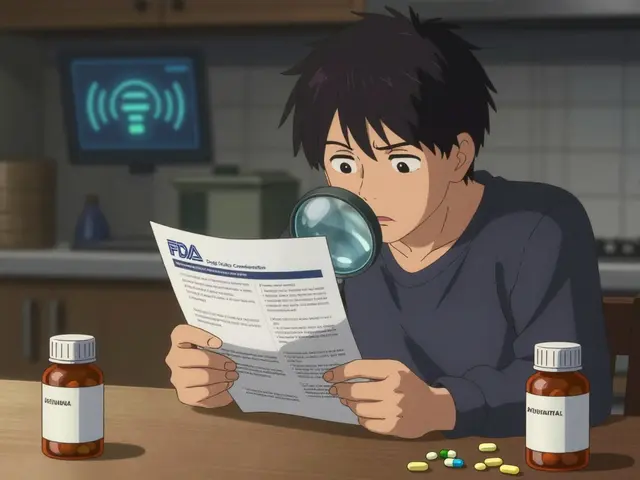

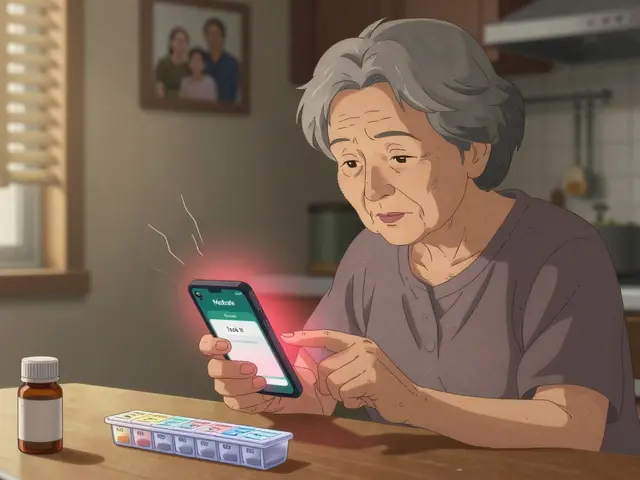
16 Comments
Every business that serves food should treat the law like a health inspection-ignore it at your own peril, because the consequences are far messier than a simple salmonella scare.
Great summary, very clear and easy to follow, definitely helpful for anyone running a kitchen.
The legal architecture surrounding food safety in the UK is, in essence, a layered defence designed to protect the consumer while assigning clear accountability to producers and vendors.
First, the Food Safety Act 1990 establishes a baseline duty of care, making it an explicit offence to place unsafe food on the market.
Second, the Consumer Protection Act 1987 introduces strict liability, meaning that even absent negligence, a defective product can trigger massive compensation.
Third, the Food Information Regulations 2014 demand accurate labelling, a factor often overlooked until a recall amplifies reputational damage.
What is striking is how these statutes interlock, creating a cascade of potential penalties that can quickly transform a minor contamination incident into a multi‑million‑pound crisis.
From a practical standpoint, the most effective mitigation lies not in legal gymnastics but in proactive risk management, chiefly a rigorously maintained HACCP plan.
HACCP functions as the industry‑accepted standard of care; courts routinely use its presence-or absence-as a litmus test for negligence.
Moreover, the preservation of detailed records, from temperature logs to supplier invoices, serves as the primary evidentiary backbone in both regulatory investigations and civil litigation.
Regulators will often request these documents within hours of an outbreak, and failure to produce them can be construed as obstruction, compounding fines.
Insurance should not be viewed as a mere afterthought; a robust product‑liability policy can absorb a significant portion of recall, lawsuit, and fine costs, preserving the business’s solvency.
It is also prudent to negotiate outbreak clauses that specifically address coverage for food‑borne illness, as generic policies may exclude such events.
In the event that an outbreak does occur, the immediate steps-notification to the FSA within 24 hours, initiation of a recall, and securing legal counsel-are critical to limiting both financial and reputational fallout.
Transparency with customers, while uncomfortable, can mitigate class‑action risks and preserve brand loyalty in the long run.
Finally, directors must recognise that personal liability is on the table; willful negligence can lead to disqualification, personal fines, or even imprisonment under the Food Safety Act.
In sum, the legal landscape is unforgiving, but disciplined compliance, meticulous documentation, and swift, transparent action constitute the most reliable shield against catastrophic loss.
It’s laughable that the UK thinks it can dictate food safety standards while neglecting its own outdated inspection regime-our own nations could teach them a thing or two about real accountability.
The jurisprudential underpinnings of food‑safety liability merit a considered reflection: while strict liability furnishes plaintiffs with a potent remedy, it simultaneously implores manufacturers to internalise a culture of preventive vigilance, thereby harmonising legal imperatives with ethical stewardship.
While I appreciate the lofty phrasing, the reality for a small kitchen is that a well‑documented HACCP plan can be the difference between keeping the doors open and watching the lights go out-so yes, get that paperwork in order.
Salmonella scares are the worst kind of surprise party.
Looks like the powers that be don’t want you to know they’re watching every kitchen…👀
When we consider the intersection of statutory duty and corporate governance, it becomes evident that the preservation of exhaustive audit trails is not merely procedural but integral to evidentiary resilience.
In compliance theory, the concept of "traceability" operates as a function T(t) = Σ_i^n (record_i × verification_i), ensuring that each node in the supply chain is cryptographically linked to the next, thereby satisfying both the Food Safety Act and ISO 22000 standards.
Anyone who thinks they can dodge the law by claiming “we followed the manual” is either delusional or hoping for a miracle, and both are equally dangerous.
Seriously, read the manual, keep those logs, and maybe don’t treat food safety like a suggestion 🙃.
Wow, drama alert! Next thing you know, they’ll be suing the plate for being too shiny.
Keep your team trained and your paperwork tidy-you’ll thank yourself when the next inspection rolls around.
Tip: store recall procedures in a shared drive so everyone can access them instantly 📂.
In summary, meticulous record‑keeping, proactive HACCP updates, and swift regulatory notification, all constitute the essential pillars of a robust defense, thereby minimizing exposure to both civil liability and criminal sanction.